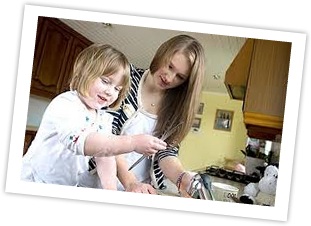- Au Pair of the Year 2024
- From our Community Counselors: What impact on your life has EurAupair made?
- How Do Au Pair Programs Work?
- Stories of Au Pairs and Host Families During COVID-19
- Things to Do With Your Toddler in NY
- Snow Day Child Care: The Rising Solution for Budget-Savvy Parents
- 5 Winter Activities Your Au Pair and Children Will Both Love
- How to Thrive With a Live In Nanny in Washington D.C.
- Make Your Au Pair Feel at Home During the Holidays
- Edna Imbachi Guaca - Au Pair of the Year 2020
- Five Steps to Take When Issues Arise
- Affordable Child Care Alternatives
- Top Five Benefits of Hosting an Au Pair
- Au Pairs Versus a Nanny
- Host an Au Pair
- Cooking With Your Au Pair
- Things to Do With Your Toddler in Los Angeles
- Au Pair Gift Ideas
- Establishing Ground Rules With Your Au Pair
- Au Pair Host Family Story: The Brown Family
- EurAupair: Culturally Enriching, Convenient, and Affordable for 30 Years
- Au Pair and Pet Care | Can an Au Pair Care for Pets?
- Tips For Transitioning From One Au Pair To Another
- How to Prepare For and Conduct an Au Pair Telephone Interview?
- Can My Au Pair Drive?
- How to Prepare for an Au Pair?
- Things to Do With Your Toddler In Boston
- Never say goodbye… | An Au Pair Reunion Story
- Things to Do With Your Toddler In Chicago
- The Ultimate Au Pair Guide
- Why Host An Au Pair | Question to Consider When Choosing to Host
- How To Get The Best Of The Cultural Exchange With The Host Children
- How to Help Your Au Pair Adjust to a New Culture
- Au Pairs: A Solution for Military Families
- Au Pair Host Family Story: Amy & Luke
- Safety Tips to Consider Before Hosting an Au Pair
- 5 Steps to Finding the Perfect Au Pair
- How to Help Your Homesick Au Pair
- What Can And Can't Your Community Counselor Do?
- 6 Fun After School Activities for Host Families and Au Pairs
- Au Pair Summer Schedule
- How to Travel With Your Au Pair
- 6-Steps to Welcome your Au Pair
- Au Pair Schedule 101
- FAQ on Au Pairs Driving in the U.S.
- Host Family Guide to a Successful Year
- Single Parents Can Reduce Stress with Au Pairs in America
- Enrich The Lives of Your Family Through Cultural Exchange with an Au Pair Agency
- Au Pair Host Family Story: Christine & John
- Can au pairs provide child care over the holidays
- Hosting an Au Pair: True or False
- What do you do to entertain a 20-year-old when you’ve forgotten what it’s like to be 20?
- Welcoming Your Au Pair
- 7 Au Pair Facts
- Au Pair Host Family Story: Kelly & Micha
- Why Choose EurAupair
- The Second Au Pair Syndrome
- Au Pair Host Family Story: Kati & George
- EurAupair Host Families Reviews
Welcoming Your Au Pair
You’ve gone back and forth thinking… is this really the right decision? Do we want to commit to bringing a young au pair from another country into our home? How many candidates should we talk to? Which one should we choose? You’ve finally made the jump and now it’s almost time for your au pair to arrive to your home!
More questions arise… How to prepare for her arrival? Do we get her a gift? What will she expect? Will she be overwhelmed? How do we make sure we open our homes and lives to her from the get-go? Here are answers to some of your questions. We know every family is different and not all suggestions will seem right to you, which is okay.
The first step is to get your au pair from the airport or from the NYC Au Pair Workshop and bring her back to your home. Go to welcome her as a family or at least with the children, and have the kids make a sign to welcome her as she comes out! At home, make sure her room is ready and somewhat decorated, although you want to be sure she can still add her touch and personal style. Why not ask the children to write her a welcome letter and put it on her bed? That’d be such a caring gesture as she discovers her room. You could consider getting a welcome gift for your au pair, nothing big, but a little something will go a long way! And finally, think of a few things to do during her first weekend… although your au pair may be tired after a full week at the au pair workshop, going somewhere for the day or visiting relatives for dinner may help her forget that she just left her whole life, family, and friends! Remember that you (at least one member of your family) should spend the first three days following your au pair’s arrival to your home with her.
Now that she’s made it safe and sound to your home and to her room, it’s time to get her acclimated to your home and routine. Show her around the home: where is the food pantry, where to find the first aid kit, how to use all home appliances (it may be different from what they are used to!). Let your au pair know what the basic house rules are (shoes in the house, turning off lights, etc.); also explain to her what her schedule will be and take a moment to discuss money matters (to avoid your au pair being uncomfortable asking about her stipend arrangements). Lastly, think of a few things your au pair will need to know regarding child care (where are the children’s clothes, toys, any tips if they cry) and give her all phone numbers in case of an emergency (emergency contacts, 911, local doctor, closest hospital, EurAupair toll free line).
And last but not least, don’t forget to show your au pair your neighborhood and community! Let her know how to get by (any transportation? How to use the car?) and show her places she can go with the children or on her own during her free time (parks, restaurants, coffee shops, museums, etc.). With this all, your au pair will smoothly transition into her new home, her new family, and her new life!




